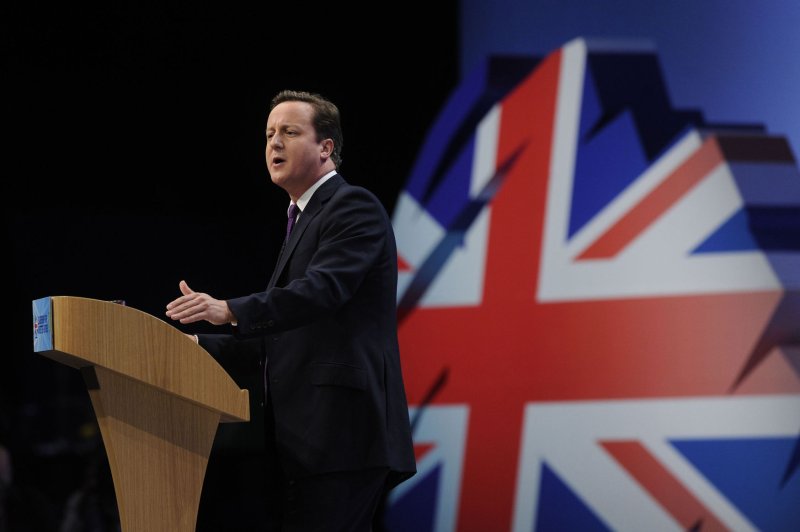British Prime Minister David Cameron told members of Parliament he made the right call in rejecting changes to European Union treaties last week.
UPI/Stringer |
License Photo
LONDON, Dec. 12 (UPI) -- British Prime Minister David Cameron told members of Parliament he made the right call in rejecting changes to European Union treaties last week.
At the two-day European Union summit in Brussels that ended Friday, Cameron stood alone among the leaders of the 27 European Union member states in rejecting the proposals that call for tighter fiscal discipline, a centralized authority on budget issues and a $260 billion package for the International Monetary Fund to assist debt-burdened countries.
In a televised appearance, Cameron said, "I responded in good faith. We were simply asking for a level playing field."
Leaders of a few member states said they would bring the proposals back to their own parliaments to discuss them. But no other country turned the proposals down outright, which made Cameron a stalwart defender of Britain among anti-European factions in Britain, The New York Times reported Monday.
To others, Cameron made Britain stick out like a sore thumb.
Liberal Democrats leader Nick Clegg said Britain could be left "isolated and marginalized." During Cameron's appearance in Parliament Monday, Clegg was noticeably absent, the Times said.
"A Britain that leaves the European Union will be considered irrelevant by Washington and a pygmy in the world, when I want us to stand tall in the world," he said.
David Miliband, former British foreign secretary, said Cameron's vote was futile.
"This is the first veto in history not to stop something. The plans are going right ahead. It was a phantom veto against a phantom threat," he said.
A more tempered response came from French President Nicolas Sarkozy.
"You have to understand this is the birth of a different Europe -- the Europe of the eurozone in which the watchwords will be the convergence of economies, budget rules and fiscal policy," Sarkozy said. "A Europe where we are going to work together on reforms."
But he also said France and Britain were united on several major policy fronts, including nuclear energy, the military intervention in Libya and "a strong cooperation in defense."
"We need Great Britain," Sarkozy said.
In Brussels, Pia Ahrenkilde-Hansen, a spokeswoman for European Commission President Jose Manuel Barroso, said "a lot remains to be sorted out in legal terms and institutions will be working together in the coming days in order to achieve that," The New York Times reported.










